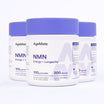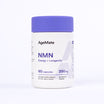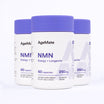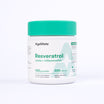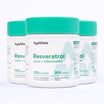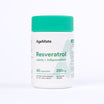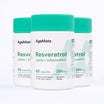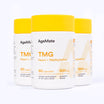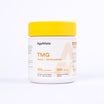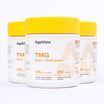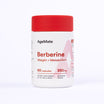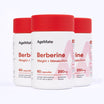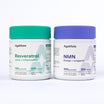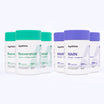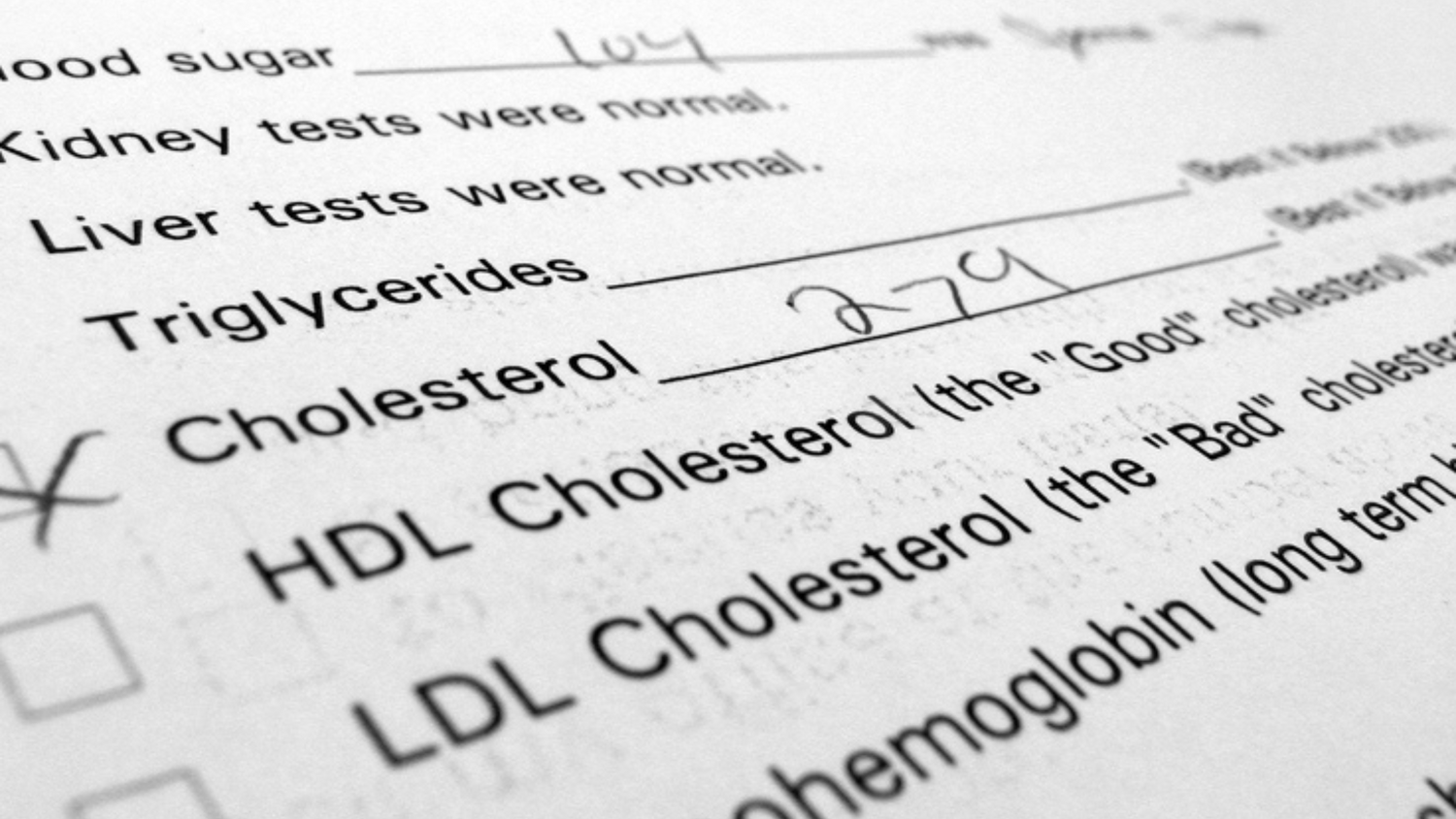Key Takeaways
- The total cholesterol number alone doesn’t tell the full story—understanding HDL, LDL, and triglycerides is key to assessing heart health.
- High HDL and a healthy LDL-to-HDL ratio can reduce cardiovascular risk, even if total cholesterol is elevated.
- High triglycerides combined with normal cholesterol levels can indicate metabolic issues, including liver dysfunction and insulin resistance.
Did you know that nearly half of Australians over 45 have high cholesterol? and many may not actually need cholesterol-lowering medication (R). That’s because your total cholesterol number is just a single snapshot of your health—it doesn’t reveal whether that cholesterol is helping or harming your body.
Instead of worrying about total cholesterol alone, it’s far more important to understand what’s inside that number. Is it mostly “good” HDL? Is your LDL actually the harmful, oxidised kind? And what about your triglycerides, which are often overlooked but can be a stronger predictor of heart disease than LDL itself?
Let’s break down what really matters when looking at your cholesterol numbers and what they mean for your longevity.
What Is Total Cholesterol?
Your total cholesterol is a sum of three main types of fat molecules in your blood (R):
HDL (High-Density Lipoprotein) – Often called “good” cholesterol, HDL helps remove excess cholesterol from your arteries and transports it to the liver for excretion. Higher levels are associated with a lower risk of heart disease.
LDL (Low-Density Lipoprotein) – Known as “bad” cholesterol, but it’s more complex than that. Some forms of LDL are harmless, while small, oxidised LDL particles can build up in arteries, increasing the risk of blockages and heart disease.
Triglycerides – These are fat molecules stored in your blood for energy. While not technically a type of cholesterol, high triglycerides increase cardiovascular risk and may signal issues like insulin resistance or fatty liver disease.

Rather than focusing on your total cholesterol number alone, your cholesterol ratio (HDL vs. LDL) and triglyceride levels provide a clearer picture of your cardiovascular health.
Three Common Cholesterol Scenarios & What They Mean for Your Health
Not all high cholesterol readings are a cause for concern. Let’s look at three common patterns and what they might indicate about your longevity.
Scenario 1: High Total Cholesterol + High LDL + Low HDL + High Triglycerides
This combination is the most concerning and indicates an increased risk of heart disease and metabolic syndrome.
- Approximately 32% of Australians have elevated LDL levels (R).
- Low HDL means less protection against arterial plaque buildup (R).
- High triglycerides are often linked to insulin resistance, excess weight, and poor metabolic health (R).
What to Do: Focus on lifestyle changes to lower LDL and triglycerides while boosting HDL through healthy fats, exercise, and reduced sugar intake.
Scenario 2: High Total Cholesterol + Normal LDL + High HDL + Normal Triglycerides
This is a low-risk profile where high cholesterol is driven by beneficial HDL.
- A high HDL-to-LDL ratio is protective against heart disease (R, R).
- High HDL is typically seen in those who eat healthy fats and maintain an active lifestyle (R).
- However, excessively high HDL (above 116 mg/dL for men and 135 mg/dL for women) may indicate a genetic factor affecting cholesterol metabolism (R).
What to Do: If your triglycerides and LDL remain in a healthy range, this profile is usually not a concern. Maintaining an anti-inflammatory diet rich in omega-3s will support longevity.
Scenario 3: High Total Cholesterol + Normal LDL + Normal HDL + Very High Triglycerides
This pattern can be dangerous, even when cholesterol levels seem normal.
- Very high triglycerides may indicate metabolic dysfunction, fatty liver disease, or insulin resistance (R).
- Liver issues can contribute to high triglycerides, as the liver plays a major role in fat metabolism (R).
- High triglycerides also increase the risk of acute pancreatitis, a serious inflammation of the pancreas (R).
What to Do: Get liver enzyme tests to check for fatty liver, cut back on refined carbs and alcohol, and prioritise exercise to improve insulin sensitivity.

The Cholesterol Myth: Why Your Body Needs It for Longevity
For years, cholesterol has been demonised, but the truth is that your body needs cholesterol to function optimally.
Brain Health: Cholesterol makes up 25% of your brain’s total weight and is essential for memory and cognitive function (R).
Hormone Production: Cholesterol is the building block of hormones like oestrogen, testosterone, and cortisol. Low cholesterol can cause hormonal imbalances and fatigue (R).
Longevity and Cellular Health: Every single cell in your body relies on cholesterol for cell membrane integrity and repairing damage from oxidative stress (R).
Instead of aiming for extremely low cholesterol, focus on maintaining a balance where LDL is under control, HDL is strong, and triglycerides remain low.
How to Optimise Cholesterol for Longevity
If you want to keep your cholesterol in a heart-healthy range while promoting longevity, focus on these science-backed strategies:

- Eat More Omega-3s – Found in fatty fish, flaxseeds, and walnuts, omega-3s lower triglycerides and reduce LDL oxidation (R, R).
- Cut Back on Processed Carbs & Sugar – Excess sugar is converted into triglycerides, raising your risk of insulin resistance and heart disease (R).
- Move Your Body Daily – Exercise boosts HDL and reduces LDL oxidation, making your cholesterol profile more favourable (R).
- Prioritise Fibre-Rich Foods – Soluble fibre in oats, legumes, and chia seeds binds to cholesterol, reducing absorption in the gut (R).
- Drink Green Tea – Green tea contains catechins that improve LDL cholesterol clearance and reduce oxidative stress (R).
- Consider Targeted Supplements – Certain longevity supplements like berberine, niacin, and red yeast rice naturally balance cholesterol (R, R).
The Best Approach to Cholesterol for Longevity
Your total cholesterol number alone is not a reliable predictor of heart health. What matters most is understanding the breakdown of HDL, LDL, and triglycerides to assess your actual cardiovascular risk.
Rather than aiming for the lowest cholesterol possible, focus on optimising your lipid profile with an anti-inflammatory diet, regular movement, and longevity-focused lifestyle habits.
Want to dive deeper into heart health and longevity? Read our blog: Understanding the Causes of Cardiovascular Disease.



